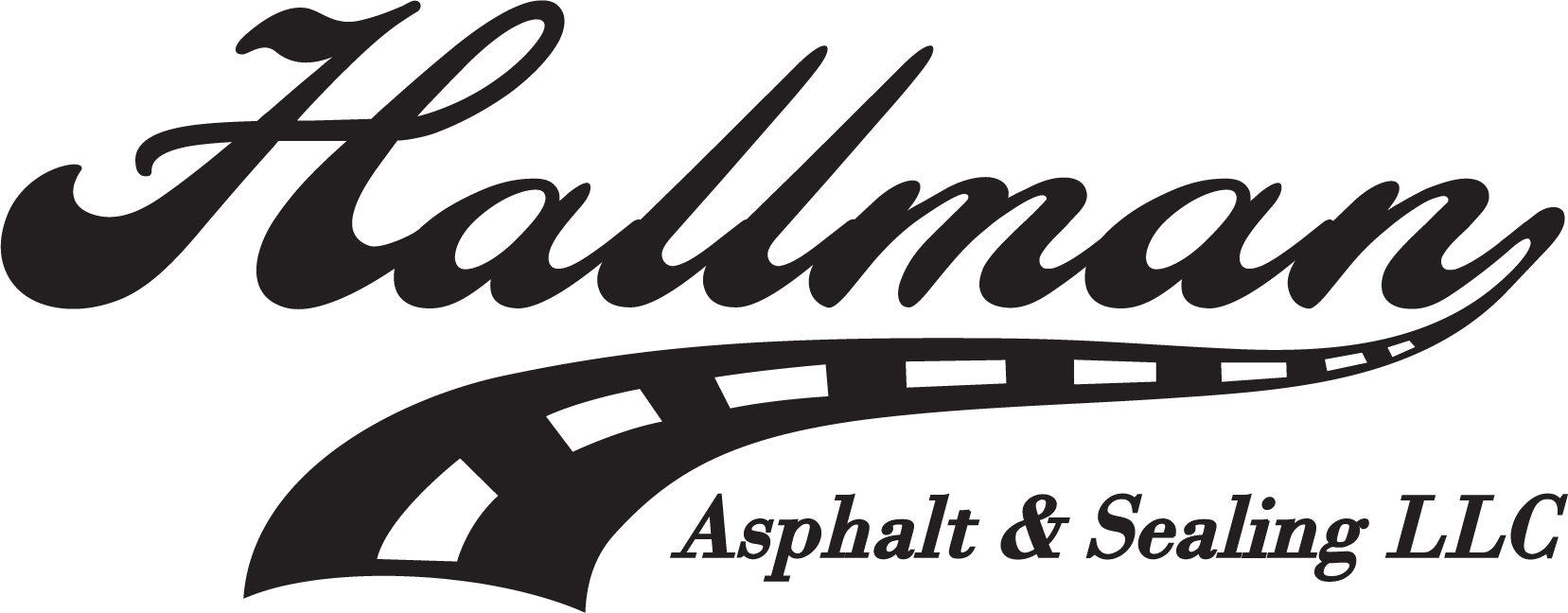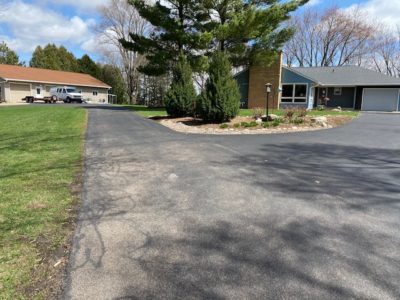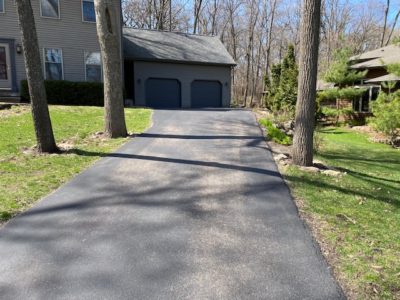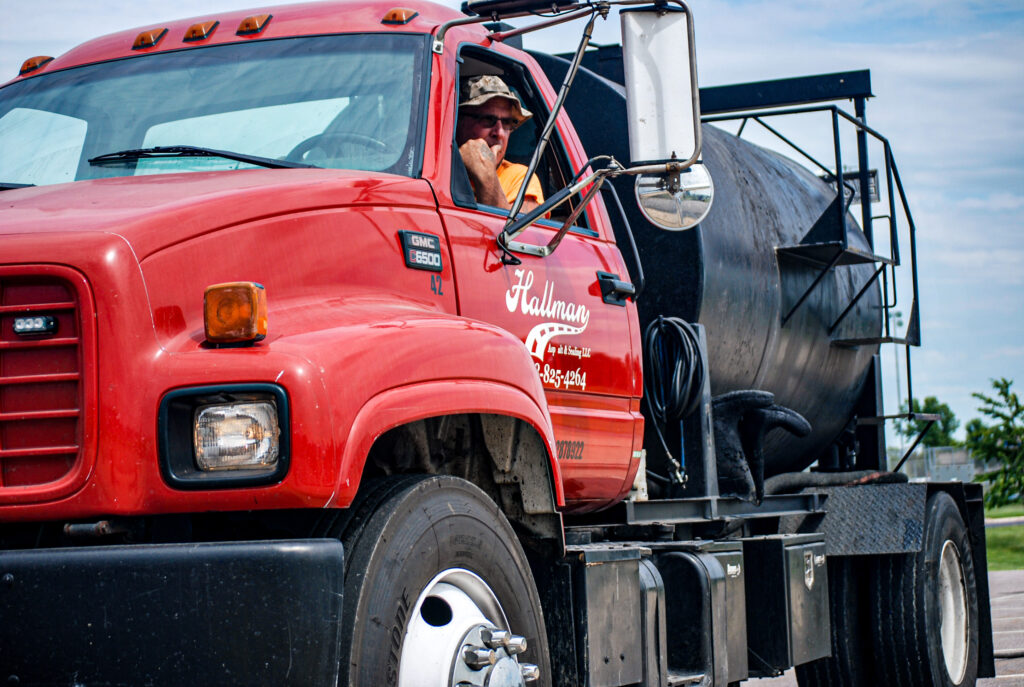
Oil-Based vs. Water-Based Sealers
At Hallman Asphalt, we take pride in providing top-notch asphalt sealing services in Madison, Janesville, and the entire Dane County area. We believe in doing things the right way, which is why we exclusively use water-based sealers for your business.
Hallman Asphalt Chooses Water-Based:
We prioritize sustainability and environmental responsibility. While oil-based sealers offer durability, their drawbacks are significant: harmful chemicals, unpleasant odor, and potential regulation bans.
Our high-quality water-based sealers deliver:
- Exceptional performance: Protects against water, oil, UV rays, and cracks.
- Long-lasting protection: Enjoy a beautiful, protected driveway for 2-3 years.
- Peace of mind: Choose a safe, eco-friendly option for your family and community.
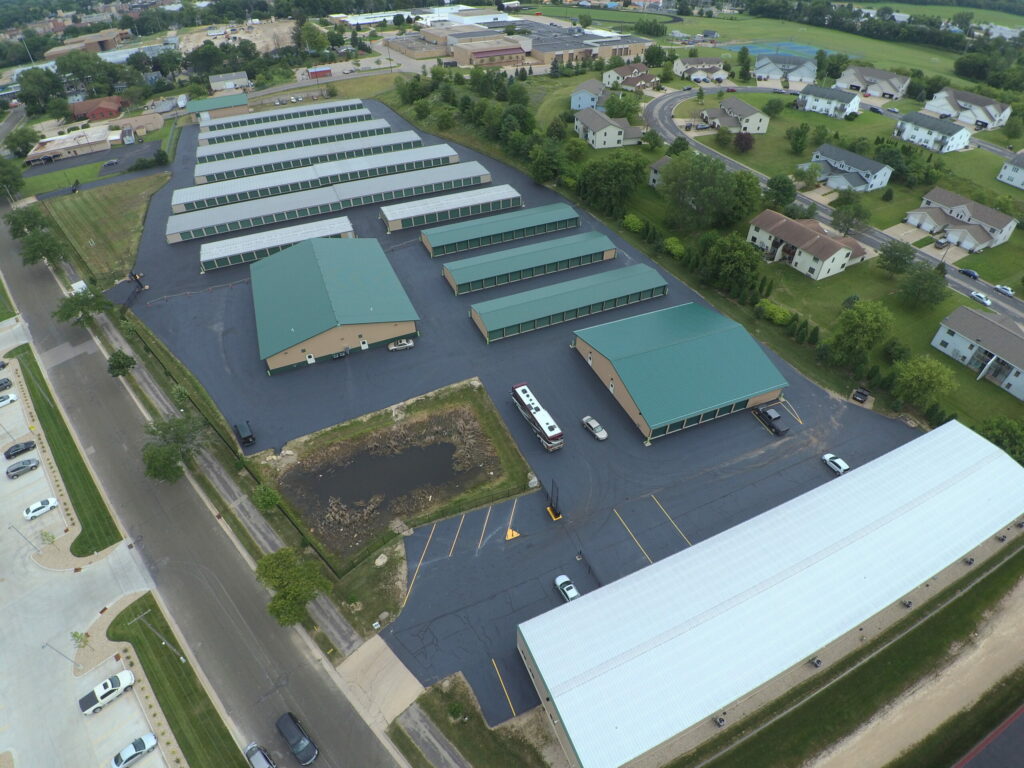
Performance You Can Trust:
While some might claim water-based sealers sacrifice durability, Hallman Asphalt assures you that’s not the case. We use top-quality sealers that effectively:
- Protect your asphalt: They create a strong barrier against water, oil, and UV rays, preventing cracks, erosion, and fading.
- Enhance curb appeal: Though offering a natural, non-glossy finish, they still beautify your driveway and maintain its value.
- Last for years: Depending on usage and climate, your water-based seal can last 2-3 years, with proper maintenance.
A few key points about water based sealer:
We go beyond simply applying sealcoat. We understand that commercial sealcoating is just one part of a comprehensive asphalt maintenance plan. Here’s what sets us apart:
- Sealer contains 20-30% water, which is better for the environment.
- No PAH threat to the environment (PAH: Polycyclic Aromatic Hydrocarbons, which is Carcinogenic)
- Water based sealer contains minimal amounts of carcinogens compared to oil based sealer.
- All sealcoat is applied at an outdoor temperature. Most believe it comes out hot, this is false.
- Crack filler is laid down at 360-400 degrees.
- Direct sunlight is required to bake/cure properly. If there isn’t direct sunlight, the water will not evaporate out of the product.
- Trees usually win.
For now, they have not came out with a new rendition of this product to combat the flaws that is has, when it comes to dealing with the elements. We will continue to search for a product that will give our customers the best final outcome in most situations. This is a never ending battle that we will continue to fight.

Water Based Sealer vs. Oil Based Sealer
| Feature | Water Based | Oil Based |
|---|---|---|
| Durability | 2-3 years | Up to 4 years |
| Finish | Natural, non-glossy | Glossy |
| VOCs | Low | High |
| Odor | None | Strong, unpleasant |
| Cost | Lower | Higher |
| Cleanup | Easy | Difficult |
| Environmental impact | Eco-friendly | Harmful |
Sealer Based Case Studies
Incident Description: Customer had areas of their driveway wash/fade away
Customer’s Location: Cottage Grove
Driveway Sqft: 6100 sqft
Completion Date: 7/19/2019
Outcome: Sealant has faded in areas under maple tree and next to large evergreens.
Causes: We believe that the faded sealant had a hard time curing properly before rain the next day. Although we had one of the hottest days of the year, the sealant that was in the shade wasn’t able to cure and evaporate the water out before the next rain had come. Similar to rain, high humidity doesn’t help the product cure any faster either.
Solution: Hallman Asphalt & the customer agreed to try one more time while watching the weather.
Incident Description: Customer had areas of their driveway wash/fade away
Customer’s Location: Waunakee
Driveway Sqft: 1600 sqft
Completion Date: 9/5/2019
Outcome: Sealant has faded in areas under trees.
Causes: Due to the large amount of shade on this customers driveway, the sealant wasn’t able to evaporate its water molecules. Although this customer was warned, they still wanted to go forth with the project. This is the large risk involved with sealcoating in the shade.
Solution: Hallman Asphalt & the customer agreed sealing would continue with the patterns of wearing away, but decided to still focus on crack filling for future maintenance.
What can you do?
- Pressure washing the asphalt prior to sealing can help get rid of tree droppings and sap. Make sure to allow time for drying prior to sealing.
- Clients with trees/shade may want to do their maintenance more often like every year to every other year.
- It is still crucial to have your cracks professional filled even if sealing doesn’t work great for your driveway. This can be done on its own & will ensure water is staying above the asphalt, protecting your base underneath.
- Address the drainage issues by your driveway by potentially turning downspouts. Identify large drainage issues that may need patching or more permanent fixes. Depending on the issue, we can help with these problems with our patching services.
The Product
While many assume all sealants are created equal, that couldn’t be further from the truth. Enter the notorious coal tar sealant, boasting high durability but harboring a dark secret: a 5-20% concentration of PAHs, harmful chemicals linked to environmental and health risks. Here at Hallman Asphalt, we wouldn’t touch this villain with a ten-foot pole!
For years the industry has relied on a petroleum-based alternative with significantly lower PAH content (less than .7%). However, staying ahead of the curve and prioritizing environmental responsibility is in our DNA.
Dane County, recognizing the potential dangers of traditional sealants, implemented regulations to promote safer, greener alternatives. These regulations effectively ban the use of sealants exceeding .001% PAH content. While currently enforced within Dane County, this regulation will become a statewide ban coming soon. As a result, the market has shifted towards water-based emulsion sealers.
Water-based sealers represent a significant step forward, prioritizing the health of our communities and the environment. However, the quest for a perfect replacement continues. These newer options haven’t quite matched the performance level of their predecessors. Still, we’re confident that innovation will bridge this gap, offering both sustainability and optimal driveway protection.
Remember, choosing the right sealant isn’t just about aesthetics; it’s about making a responsible choice for the environment and the well-being of those around you. At Hallman Asphalt, we’re committed to doing our part, and we encourage you to join us on this journey towards a greener future.
